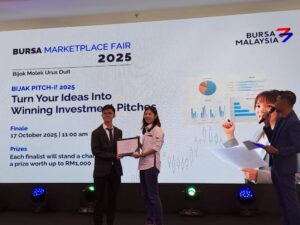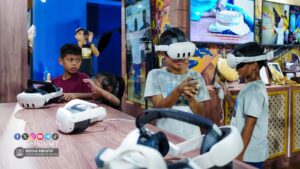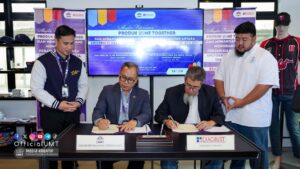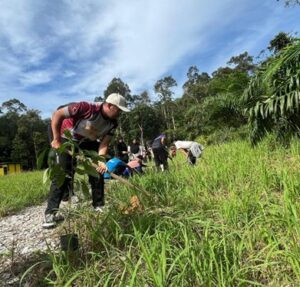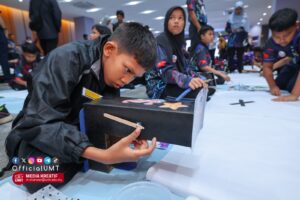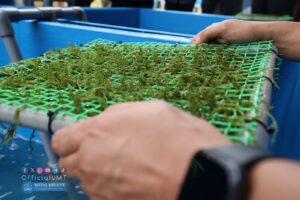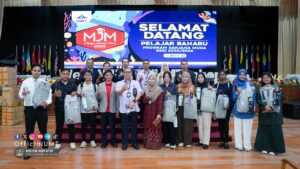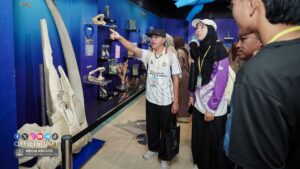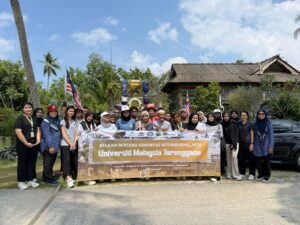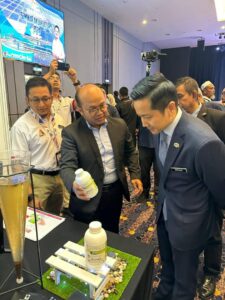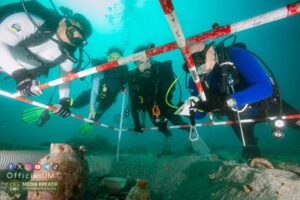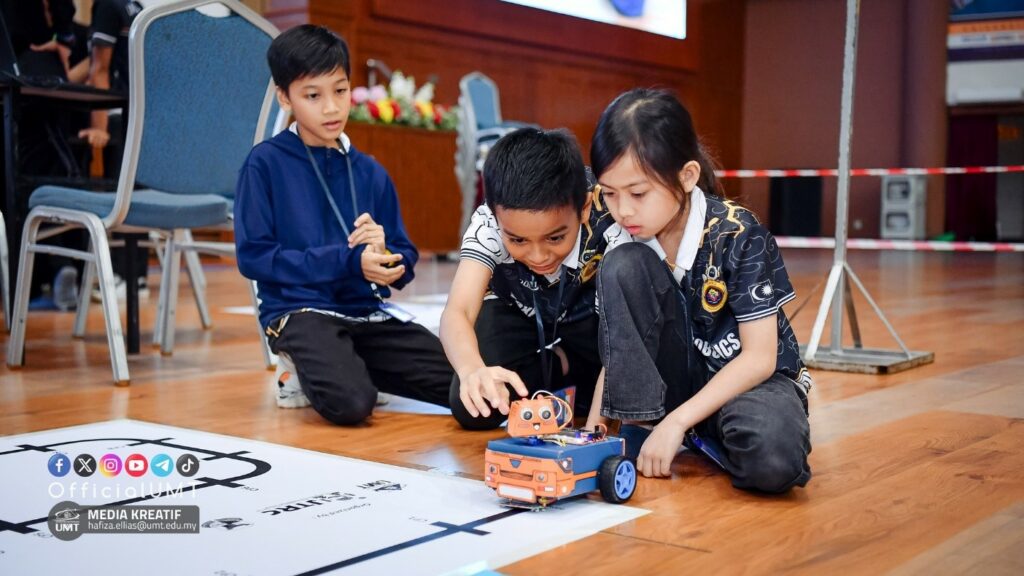
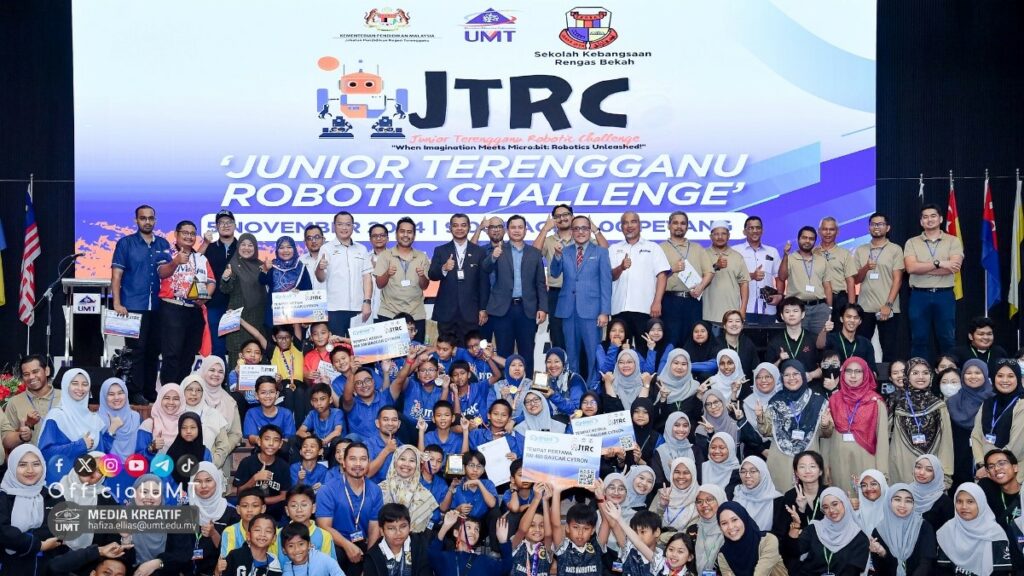
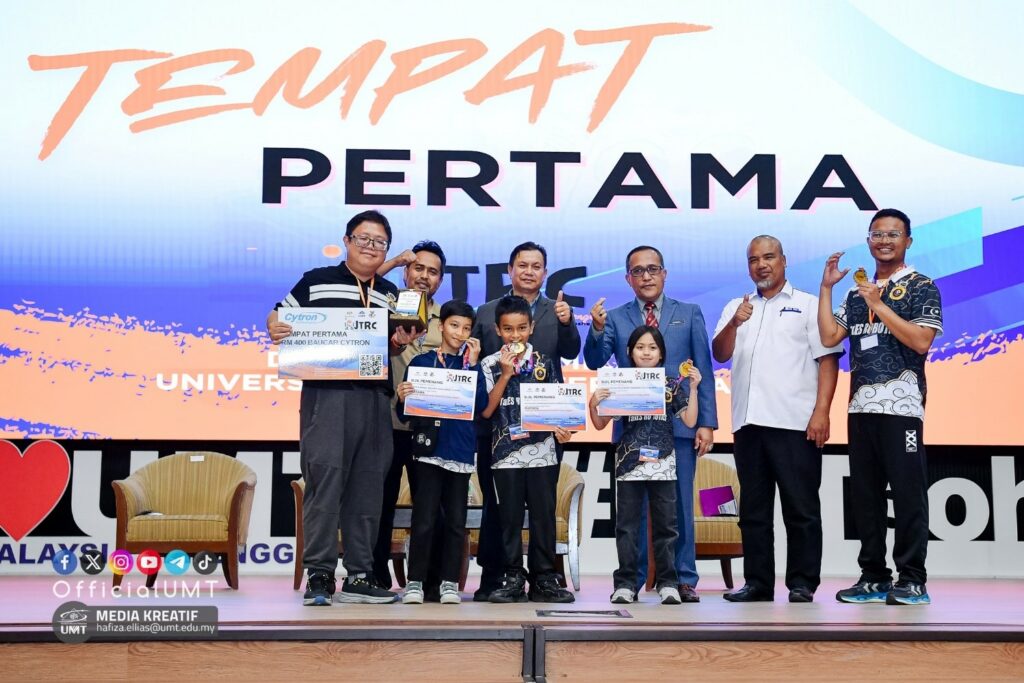
Junior Terengganu Robotic Challenge 2024: Steering Terengganu’s Young Generation towards Robotic World
Wednesday, 06/11/2024
Share This Article :
Kuala Terengganu – Junior Terengganu Robotic Challenge 2024 (JTRC 2024), the first robotic competition for primary school students in Terengganu, was held on 5 November at Sultan Mizan Hall, Universiti Malaysia Terengganu (UMT). The competition was a joint effort between UMT’s Faculty of Ocean Engineering Technology (FTKK), Rengas Bekah Primary School (SKRB), Terengganu Education Department (JPN), and Cytron Technologies Malaysia. The competition’s main aim was to introduce robotic technology among primary school students throughout the state and cultivate an early interest in science, technology, engineering, and mathematics (STEM). Carrying the theme ‘Learning While Innovating”, JTRC 2024 managed to draw participation of more than 100 teams, with each team comprising four students.
The first-ever competition also saw participation from teams under the Special School category, which consisted of Orang Asli schools, rural schools, and low-enrolment schools (SKM). SK Sungai Berua, an Orang Asli school, sent two teams despite being located far from basic infrastructure. Participation by schools under this category was seen as important for bridging the educational gap and providing equal opportunities to all students to explore the latest technology, which is one of the aspirations of Malaysia Madani introduced by Malaysia’s Prime Minister Dato’ Seri Dr Anwar Ibrahim.
A few rural schools located far from the city centres also participated, including SK Sungai Las and SK Merbau Menyusut from Setiu and SK Padang Setengge from Hulu Terengganu. Their participation gave the students from these areas the opportunity to take part in robotic learning that may not be easily accessible at their locations. Low-enrolment schools, including SK Darau in Besut, SK Sentol in Patah, Marang, SK Pecah Rotan in Kuala Nerus, and SK Pasang Luas in Besut, also sent representatives at the robotic competition despite the school facing many challenges. More than 50% of the participants in the robotic competition came from rural schools, and they have gained valuable exposures in the field of technology, making them more confident to continue innovating.
According to the programme director, Assoc. Prof. Ts Dr Ahmad Nazri Dagang, the competition was not only intended to introduce robotic technology to students, but also encourage critical and creative thinking in finding a solution to the given challenge.
“Robotic is not all about technology; it combines science, mathematics, and important critical thinking skills. We believe that the competition is an ideal way to introduce all the elements in an interesting and interactive way,” he said.
In addition, JTRC 2024 also emphasized communication and cooperative aspects by having students work in groups to exchange ideas and learn to find solutions together. This experience may help build self-confidence and important social skills among students while they strengthen their technological knowledge.
During the competition, the public was also introduced to academic programmes offered by FTKK.
“FTKK has organized several robotic workshops for school teachers as part of the preparation for participating in the competition, and it is hoped that this programme will increase students’ interest in technology and engineering, thus contributing to the development of highly skilled human resources in the future,” he said.

